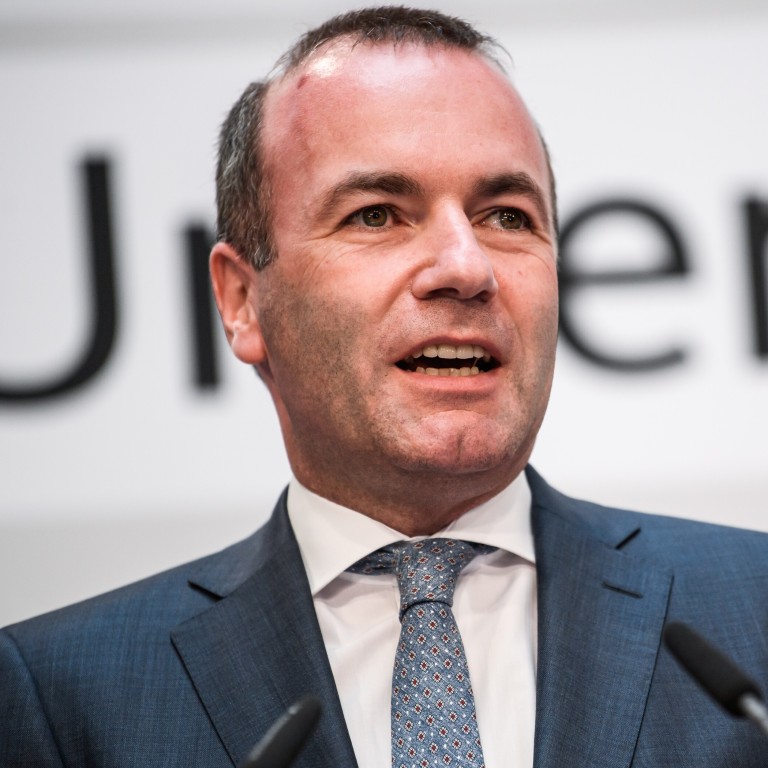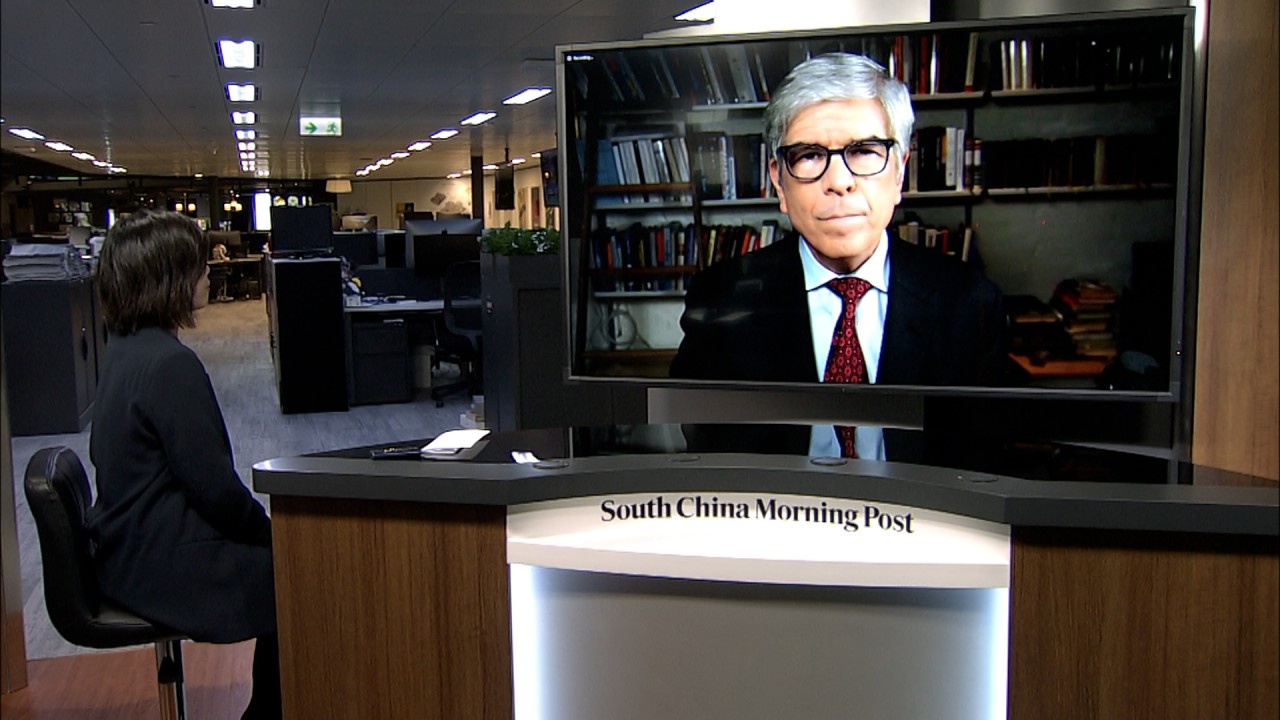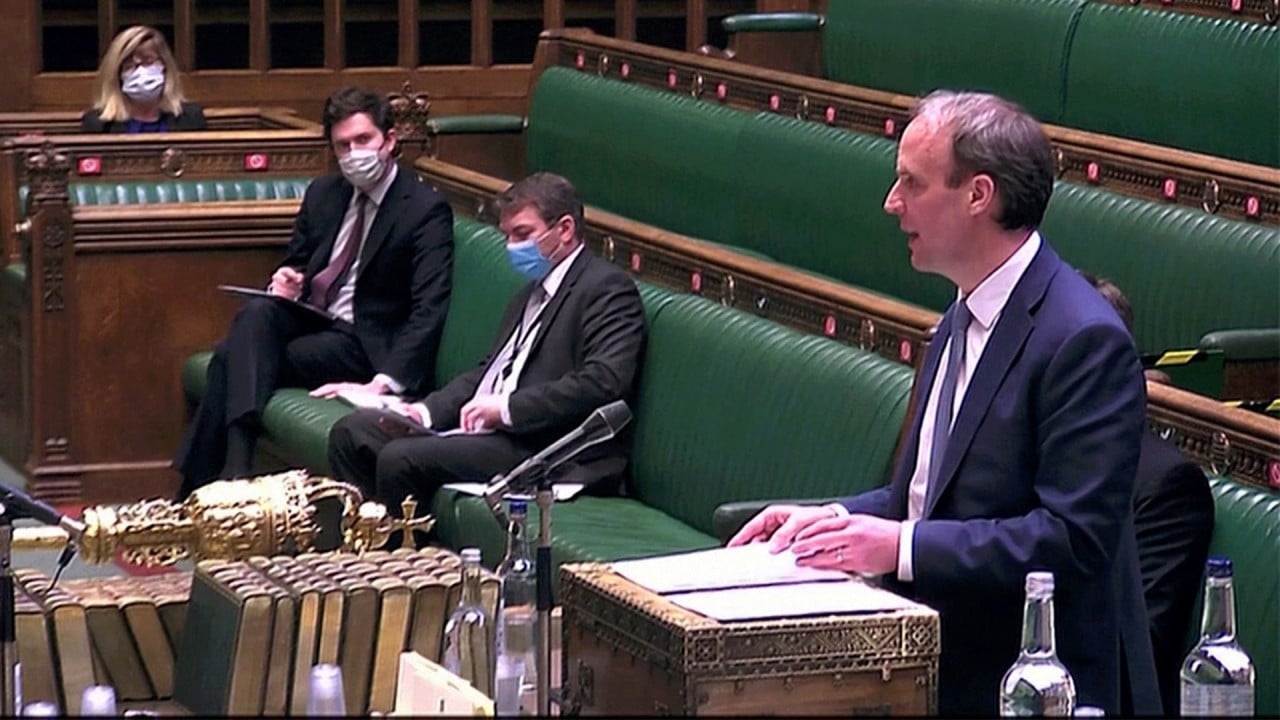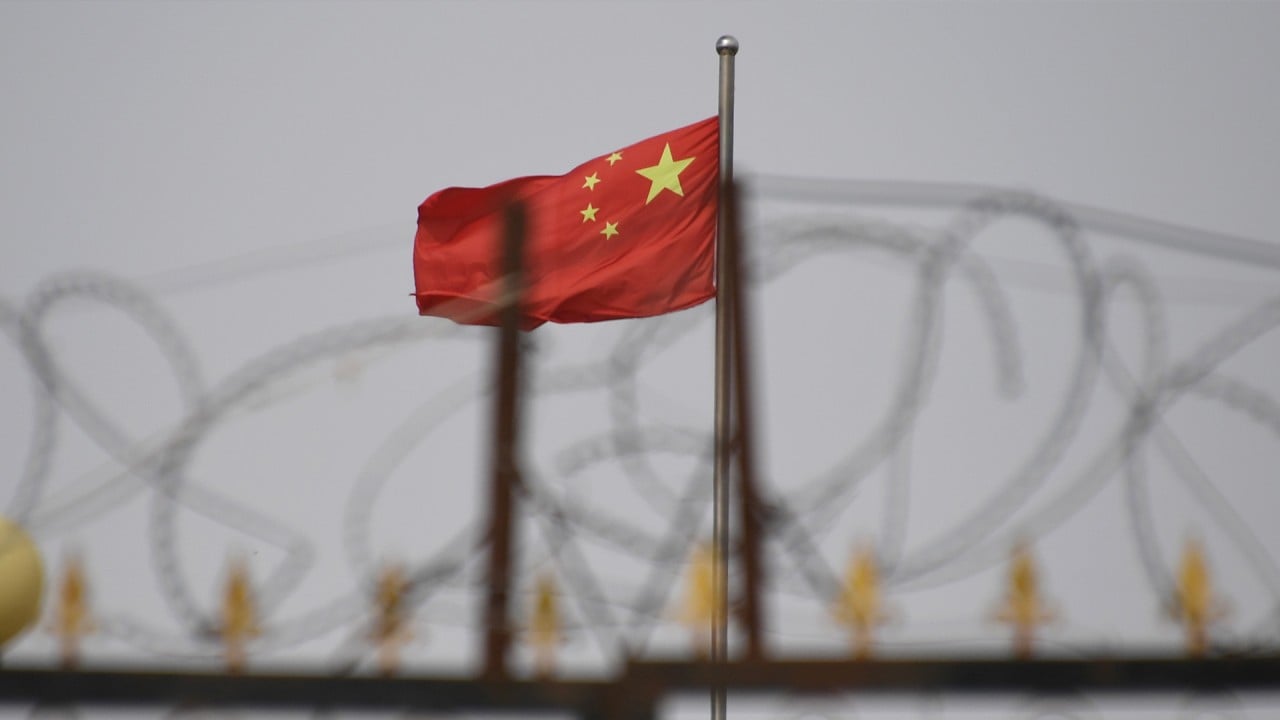
EU-China deal on the rocks as sanctions shake support in European Parliament
- Three of Europe’s top four parties have already said they will not ratify, and a lively discussion is taking place in the fourth
- Deal now faces uphill struggle to be ratified in 2022, with critics saying China misjudged the mood in Brussels
Three of the four biggest parties have already said that they cannot support the deal until sanctions are lifted, while some factions of the European People’s Party (EPP) – Europe’s biggest party – are pushing for support to be withheld.
The centre-right, pro-business group had previously backed the deal on economic grounds. But a series of high-profile members cast doubt on that stance in the past 24 hours, including the EU Trade Commissioner Valdis Dombrovskis and EPP Chairman Manfred Weber.
“China is trying to intimidate us by silencing MEPs [members of European Parliament] because they denounced the human rights abuses against Uygurs in China,” said Weber in a video posted to social media.
The deal requires ratification by the European Parliament – a process slated to begin next year – before it can be signed into effect.
“Generally as long as our elected officials are sanctioned by a third state, we can’t pursue any agreement with said state,” said one source familiar with discussions.
Dombrovskis had previously been quoted by the Financial Times saying that “the ratification process cannot be separated from the evolving dynamics of the wider EU-China relationship”.
H&M under fire in China over refusal to buy Xinjiang cotton
The EPP would join the Socialists and Democrats (S&D), Renew Europe and the Green Party in opposition, meaning political parties holding 499 of 705 seats in Parliament would stand against the CAI while sanctions remain in place.
A second EPP insider said that even if the party does not withhold support, the deal’s goose is likely cooked in the Parliament anyway.
“I don’t think the EPP’s support is even material to the CAI – if the liberals and socialists continue down this route, it is doomed,” the source said.
“The EPP is in a painful position on this. This is Angela Merkel’s deal, it is Dombrovskis’ deal, but then Michael Gahler has been sanctioned by China,” they added, referring to the German MEP Gahler, a member of the EPP.

03:29
China investment should follow Westphalian principles, says Nobel laureate Paul Romer
The sanctioned Gahler told the Post there was a “debate going on within the broad church” of the EPP, but hoped the party would consider both human rights and trade.
“I am still in favour, I will not use my own personal sanctioning as a crusade,” he said.
On Monday, in retaliation to the European Union’s first China sanctions since the Tiananmen Square crackdown of 1989, Beijing slapped visa restrictions on five MEPs, Gahler, Reinhard Butikofer, Raphaël Glucksmann, Ilhan Kyuchyuk and Miriam Lexmann, also of the EPP.
“It is not possible to work on the ratification of the CAI while members of the Parliament are under sanction. Now we have to see a decision from China to remove these – it is not possible to build the relationship while they remain in place,” said Marie-Pierre Vedrenne, a Renew MEP and vice-chair of the Parliament’s committee on international trade.
China-EU relations: Beijing ramps up the rhetoric in dispute over sanctions
The S&D had on Monday made lifting of Chinese sanctions against MEPs a precondition for any further talks on the investment deal, while the Green Party was already in opposition to the treaty.
A technical meeting in the Parliament’s trade committee planned for Tuesday had been cancelled in response to China’s reaction, which also saw sanctions placed on the Political and Security Committee, comprised of all 27 EU member state ambassadors to Brussels and the Parliament’s subcommittee on human rights.
One aide involved in the planning of the meeting said the deal was being “put in the freezer” until the political situation improved.
Signed on December 30, the deal was set to go for ratification in 2022. But even before Monday’s escalation, this was not a foregone conclusion.

02:02
Britain sanctions Chinese officials over Xinjiang alongside US, EU and Canada
A number of European capitals had raised concerns that the deal was sprung on them by the French and Germans without due consultation. A host of influential parliamentarians, meanwhile, criticised the deal’s labour chapter, which they said did not do enough to ensure China would not use forced labour in Xinjiang.
China has denied the charges of both forced labour and genocide in Xinjiang.
Now, the deal is haemorrhaging support, with insiders saying China has misjudged the atmosphere in Europe. While retaliatory sanctions were fully expected, the scope and breadth of Beijing’s reaction has stunned Brussels.
Anti-China sentiment has been building over the course of the pandemic and the appetite for further action on alleged human rights abuses in Xinjiang and the political crackdown in Hong Kong is mounting.
‘We’re in it together’, Blinken tells Nato in wake of China sanctions
A number of high profile figures, including the newly reelected Dutch Prime Minister Mark Rutte and the President of the European Parliament David Sassoli warned China that the retaliation will have consequences.
The spat will also serve to push Europe further towards a coalition with the United States, said a former EU commissioner, in a week when the Biden administration has put its European charm offensive into overdrive.

03:36
Beijing hits back at Western sanctions against China’s alleged treatment of Uygur Muslims
US Secretary of State Antony Blinken pledged to rebuild the transatlantic alliance at Nato meetings this week, before meeting with a series of European foreign ministers and top Brussels officials.
Blinken, along with the EU’s top diplomat Josep Borrell, was set to launch a new strategic dialogue on China on Wednesday.
US President Joe Biden, meanwhile, will virtually attend a meeting of the European Council on Thursday, the first US leader since Barack Obama in 2009 to do so.
“Talk about a gift for Biden,” said the ex-official. “He has been handed this on a plate. If China was hoping to head off a tough transatlantic alliance, they have a funny way of showing it.”
The week’s events suggest that Brussels’ balancing act of pursuing stronger economic ties with China while continuing to penalise it for perceived human rights abuses could be in trouble.
“The EU is struggling to strike the right balance between its values and interests,” said Philippe le Corre, a China analyst at the Carnegie Endowment for International Peace, adding that continuing to pursue the CAI after Beijing’s sanctions “won’t work with European public opinions”.

